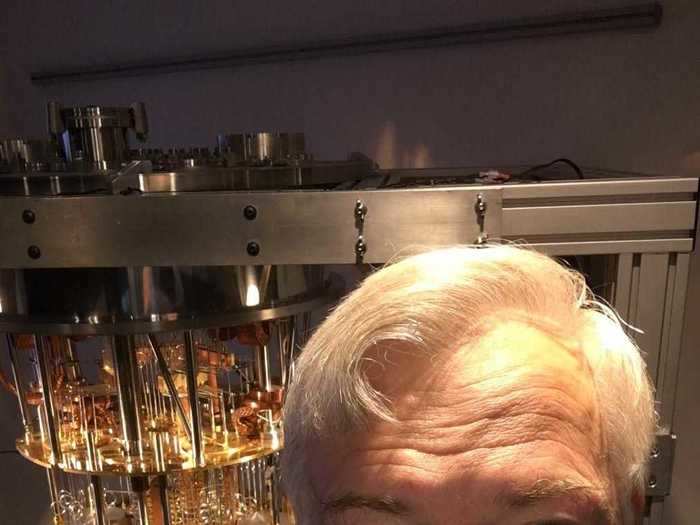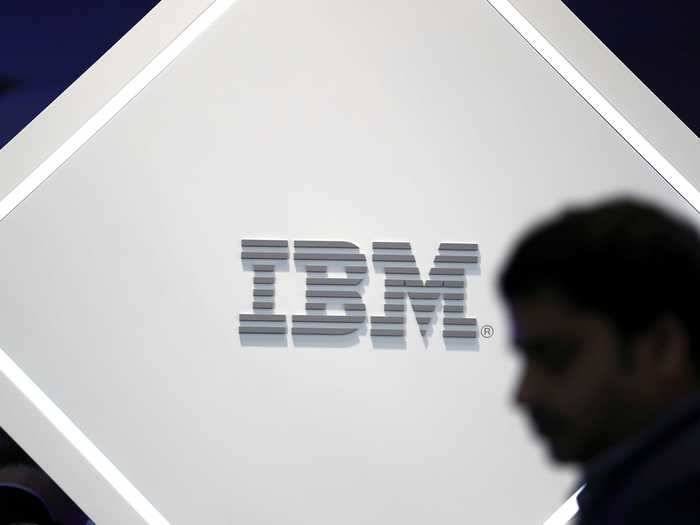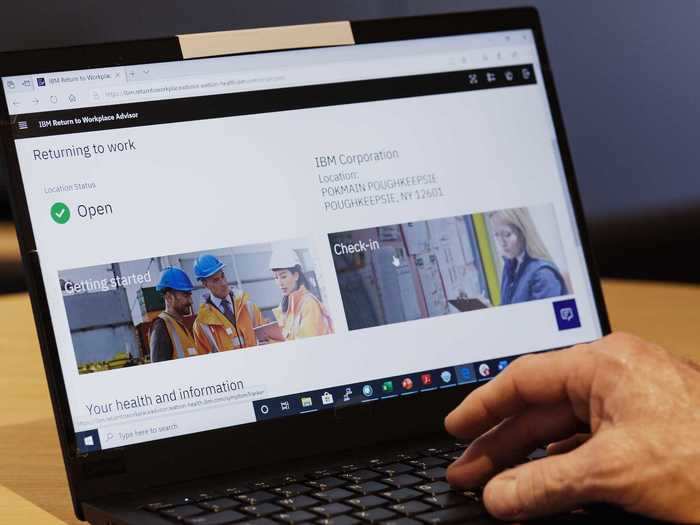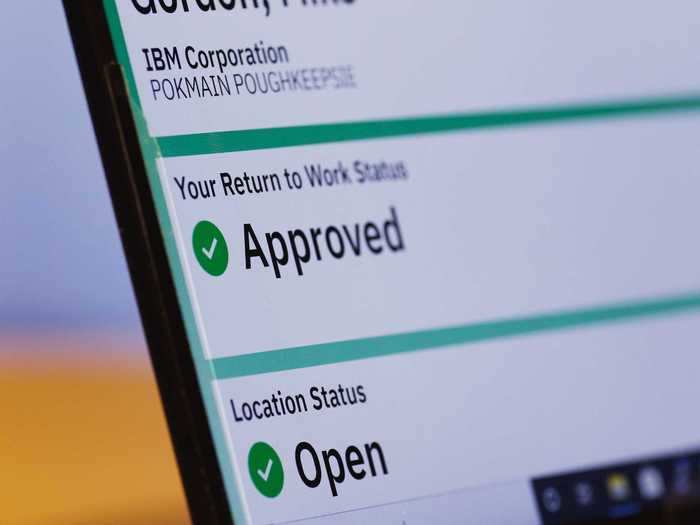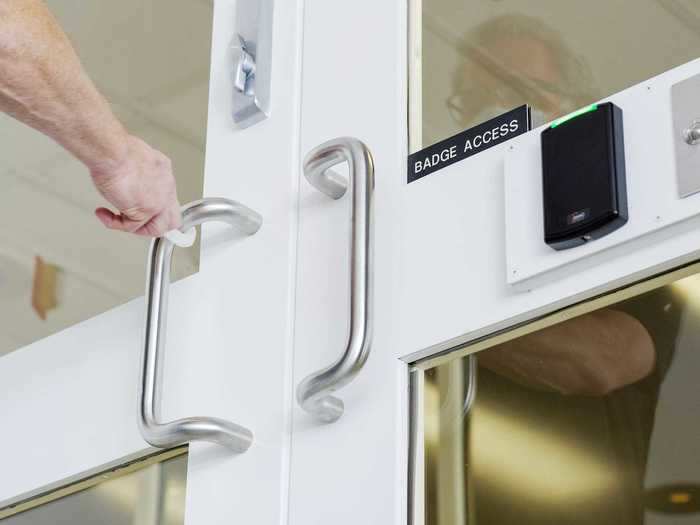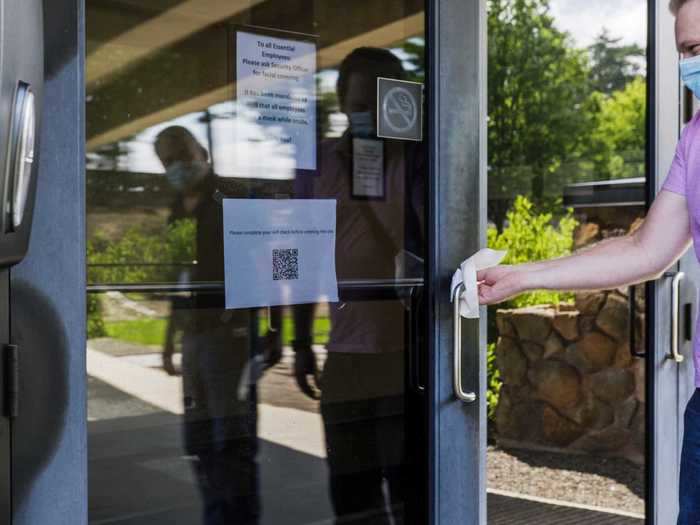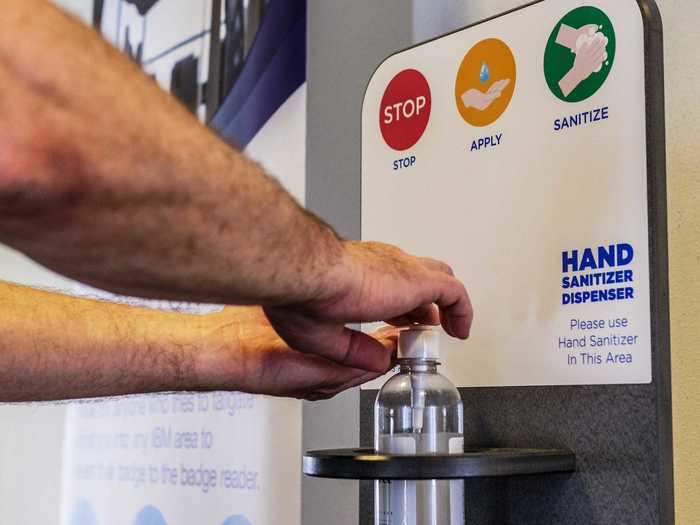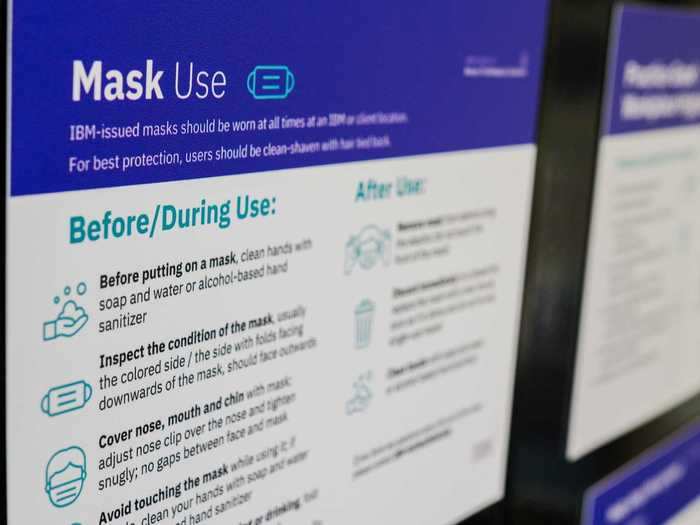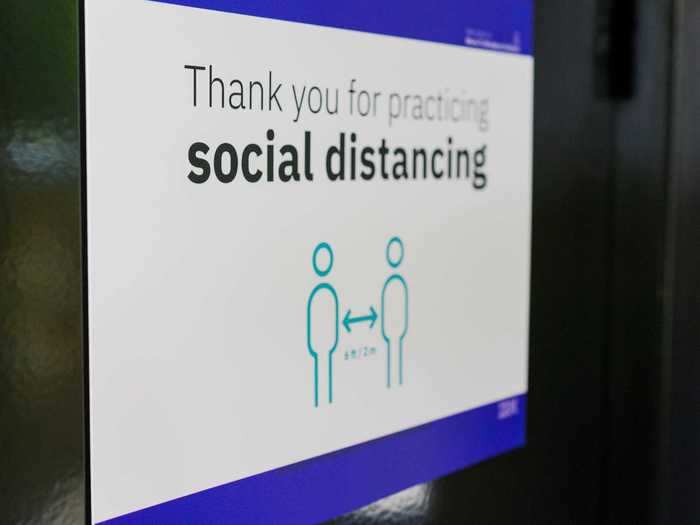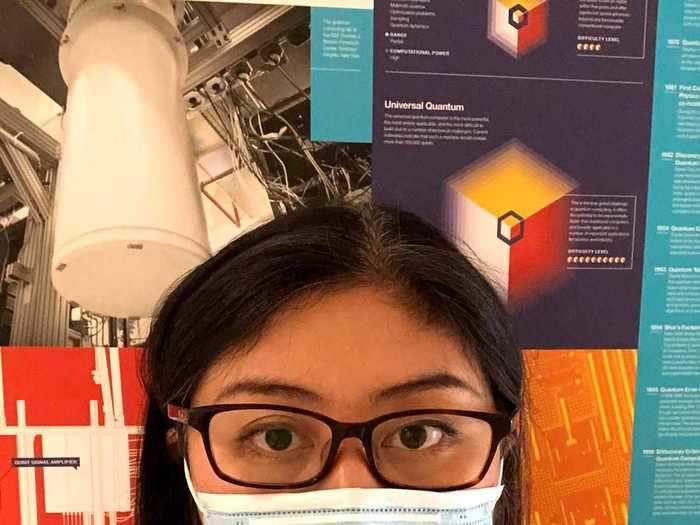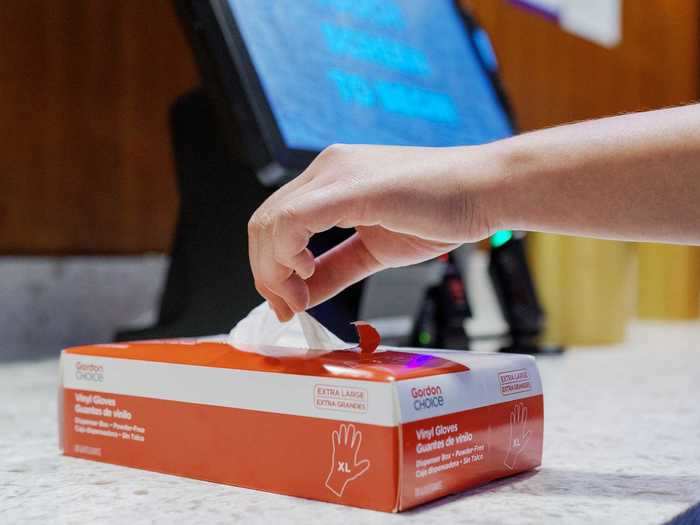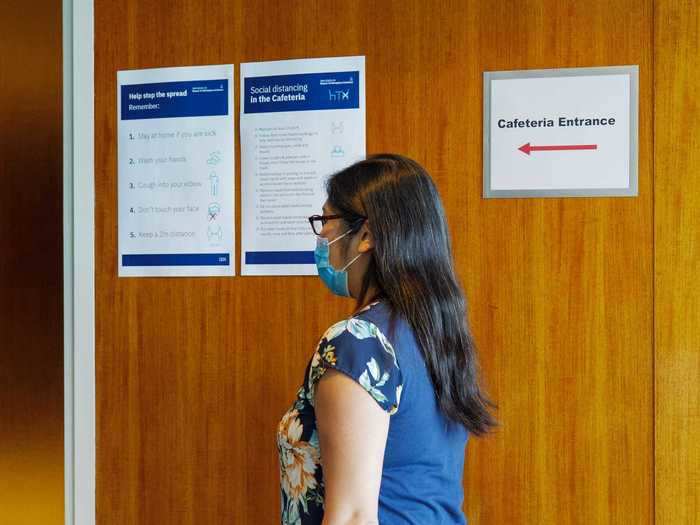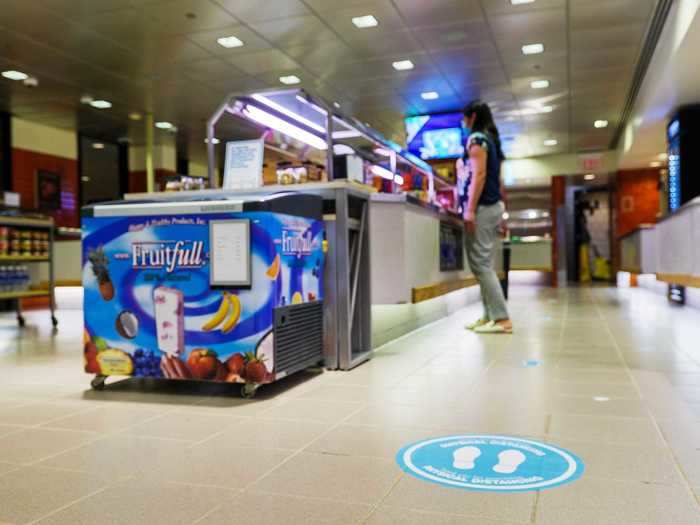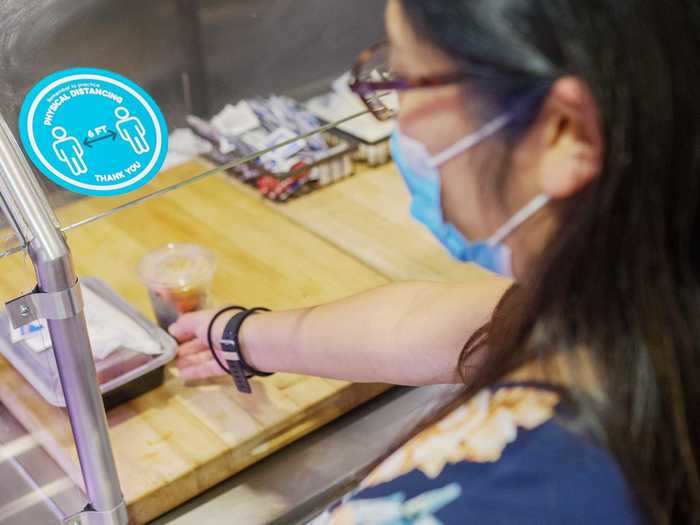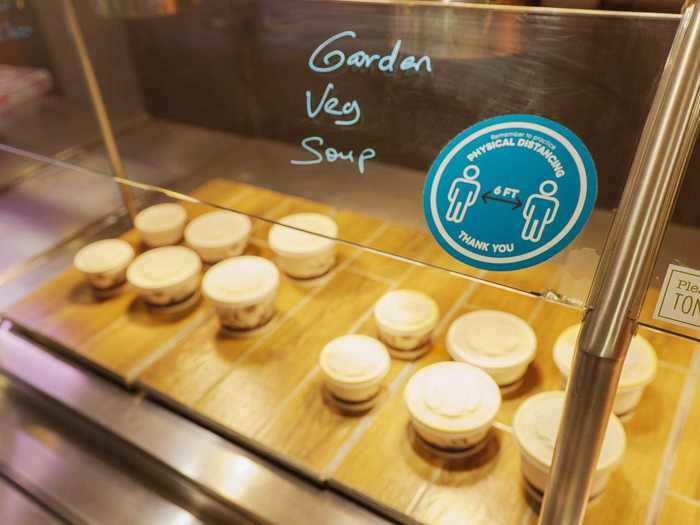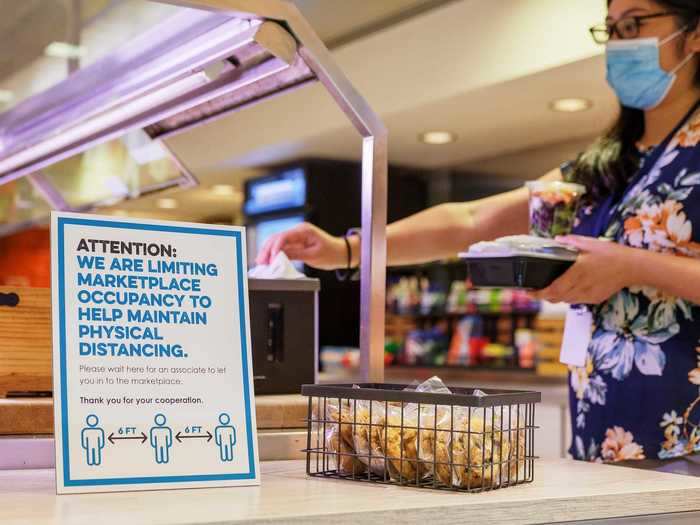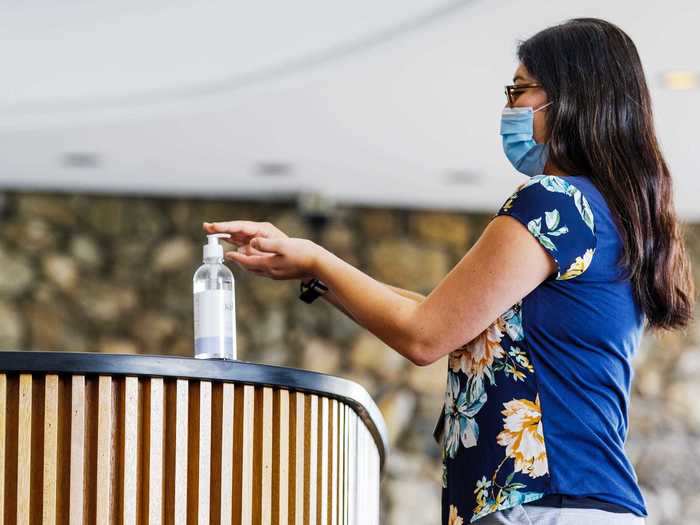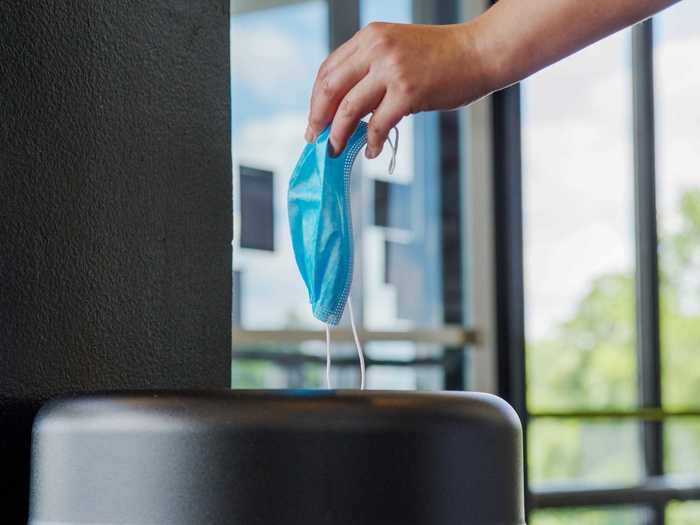Maika Takita, a research scientist, is one of about 250 workers who needs to access IBM's facilities for her work.Andrew Lindemann/IBM
- In early March, IBM's leaders, like many others, faced a difficult question: How do you keep an office open during a pandemic?
- IBM decided to use its Yorktown Heights, New York, location as a prototype for reopening its other offices.
- Bob Wisnieff, chief technology officer of quantum computing at IBM, helped oversee the effort to reimagine the workplace.
- In addition to facility changes, the company has developed an app, Watson Works, that only allows a certain number of workers into the building at one time.
As companies begin considering reopening their offices during the coronavirus pandemic, they are faced with a difficult question — how do you bring employees back to work while also ensuring their safety?
IBM has been dealing with this challenge since early March. The tech giant has about 350,000 employees worldwide, some of whom are considered essential workers.
Bob Wisnieff, chief technology officer of quantum computing at IBM, who oversees some of the company's most expensive equipment, (equipment that needs daily check-ins and tunings) was tapped to help keep IBM's headquarters in Yorktown Heights, New York, up and running.
Wisnieff devised a plan for the headquarters that other leaders could copy and apply to other global locations.
"Our main question was: How can we make sure that the people on sight are going to be working as safely as possible?" Wisnieff told Business Insider. "We retooled many many aspects of our site."
Winsieff worked with state officials, an internal crisis response team, and the building's managers, to keep the office up and running for essential workers — like those who oversee IBM's top tech hardware devices. The office has since granted access to 10-15% of IBMs normal Yorktown Heights personnel who may need occasional entry to the technology and space.
IBM gave Business Insider a virtual tour of what it's like to work in an office that has been prepped to keep employees safe from coronavirus.
Bob Wisnieff, chief technology officer of quantum computing at IBM, had to figure out how to keep IBM's workers safe during the pandemic.
Bob Wisnieff
Before COVID-19, about 1,300 people would be in the company's Yorktown Heights, New York, location on a given day. But when the pandemic hit, the company could only keep essential workers, about 200-300 people in the office.
Reuters
A group of AI experts at IBM developed Watson Works, a system to make sure there weren't too many people coming in at the same time, and that no one coming in had any symptoms.
Andrew Lindemann/IBM
Before being allowed on site, workers have to take their temperature at home, report it, and answer a series of questions about any symptoms.
Andrew Lindemann/IBM
If you don't complete the self check-in, you're not permitted to enter the building.
Andrew Lindemann/IBM
Workers report which rooms and labs they plan on using, and during which times. That way the cleaning staff is notified when to clean certain areas of the building throughout the day.
Andrew Lindemann/IBM
About 10 to 15% of IBM's workforce has been given permission to use the office. Only workers who need to use IBM's high-tech equipment, servers, or labs to run experiments, or who check in on some of the company's most expensive equipment are allowed in the office.
Andrew Lindemann/IBM
There are mask dispensers, hand sanitizer stations, and disinfecting wipes throughout the building.
Andrew Lindemann/IBM
There are signs, as well as stickers on the floor, to remind people to social distance in communal areas, such as inside bathrooms.
Andrew Lindemann/IBM
Maika Takita is a research scientist in IBM's quantum computing lab. She comes into the office about two times a week to use equipment.
Maika Takita
Takita began coming into the office mid-July to use the quantum computing lab.
Andrew Lindemann/IBM
She says the process of reporting her temperature and getting approved to enter the building is seamless.
Andrew Lindemann/IBM
IBM leaders completely redesigned and restructured the cafeteria to encourage social distancing. They removed seating and added technology like a food ordering system to reduce human contact.
Andrew Lindemann/IBM
Workers order their food ahead of time from their phones. When it's ready, a text message is sent. This ensures there aren't long lines during lunchtime.
Andrew Lindemann/IBM
Food workers prepare options ahead of time in containers, making ordering faster.
Andrew Lindemann/IBM
"The people working behind the counter are all wearing masks and gloves and the way it's set up, I feel safe. I also go to the cafe to grab coffee, where people are socially distanced and I rarely see more than one or two people on line," she said.
Andrew Lindemann/IBM
IBM's Yorktown Heights location is a prototype for other offices around the world, some of which will be adopting similar changes.
Andrew Lindemann/IBM
Wisnieff said the company will continue to adapt as the pandemic continues.
Andrew Lindemann/IBM

